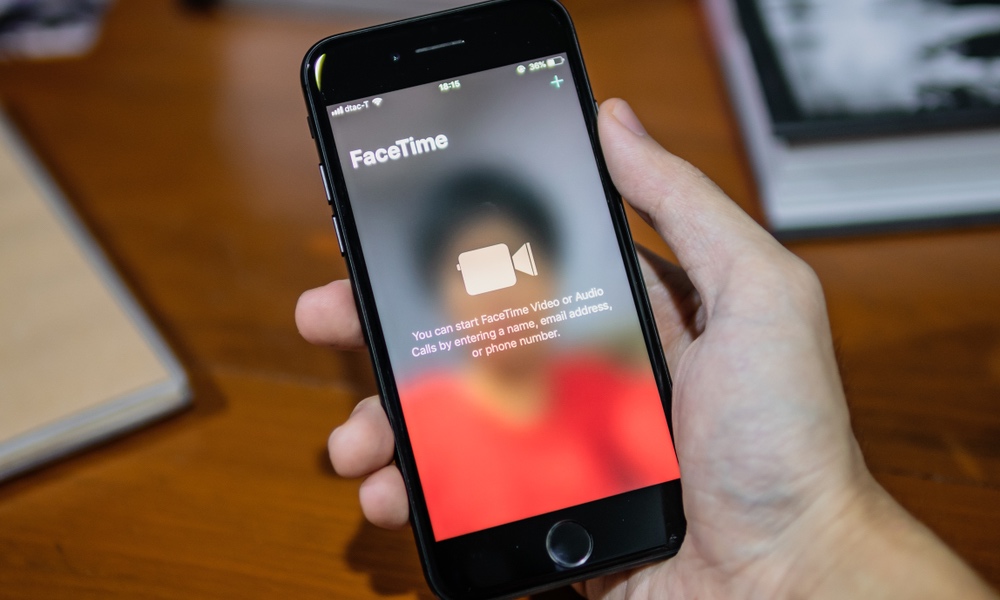iOS 14.2 Quietly Adds 1080p ‘FaceTime HD’ Video Call Support (Even on the iPhone 8)
 Credit: Wachiwit / Shutterstock
Credit: Wachiwit / Shutterstock
Toggle Dark Mode
Even though Apple’s latest MacBooks still only include a measly 720p FaceTime camera, Apple has been offering 1080p-capable front cameras on its iPhones since 2016, yet despite this, FaceTime calls have mysteriously been capped at a lower resolution — until now, that is.
Although it was completely absent from any of the release notes, Brazilian site MacMagazine (Google Translate, via 9to5Mac) has discovered that iOS 14.2 may actually unlock full 1080p “FaceTime HD” calling, showing changes made to the specs pages last month for all of Apple’s iPhone models released since 2017 that show “FaceTime HD (1080p)” in the “Video Calling” section.
According to MacMagazine’s findings, Apple made the updates between November 4th and November 9th, or around the same time that iOS 14.2 was released to the public.
With the noteworthy exception of the 2016 iPhone 7 and iPhone 7 Plus, all of Apple’s front-1080p-capable iPhone models appear to have been updated to include “FaceTime HD” support when operating over Wi-Fi, with the iPhone 12 models all getting the bonus of also being able to use it over a 5G connection as well.
This means that if you have one of the following iPhone models running iOS 14.2, you should now notice significantly better quality on FaceTime calls over Wi-Fi (or 5G in the case of the iPhone 12).
- iPhone 12 Pro Max
- iPhone 12 Pro
- iPhone 12
- iPhone 12 mini
- iPhone 11 Pro Max
- iPhone 11 Pro
- iPhone 11
- iPhone XS Max
- iPhone XS
- iPhone XR
- iPhone X
- iPhone 8 Plus
- iPhone 8
- iPhone SE (2nd Generation)
Note that you won’t get maximum quality FaceTime HD over a 4G/LTE connection, even on an iPhone 12, and this also implies that you’ll likely need to have a sufficiently speedy Wi-Fi connection as well.
FaceTime has always adapted maximum resolution to the speed of your connection, as it’s far better to have a grainy image than one that stutters and drops out, so the main difference here seems to be that Apple has removed the cap as to exactly how high FaceTime’s quality can go.
This obviously still falls short of the 4K capabilities that have been offered by the front-facing cameras since last year’s iPhone 11, but it’s probably fair to say that expecting 4K FaceTime calling would probably be asking too much at this point.
What Took So Long?
What’s especially notable about this change is that it basically confirms something we’ve long suspected: that the lower-quality FaceTime calling has always been purely a software limitation, rather than a hardware problem.
After all, if Apple’s latest iPhones can record 4K video at 60fps and even do so with Dolby Vision HDR, while also supporting the fastest and most advanced 802.11ax Wi-Fi 6 technologies, then it’s ludicrous that they shouldn’t be able to transmit a mere 1080p signal over FaceTime.
So it’s really quite unclear as to why FaceTime has remained capped at a lower resolution for as long as it has. One possibility may simply be that Apple’s FaceTime servers simply weren’t up to the task of handling the higher bandwidth traffic, but that’s a bit hard to believe considering how much money Apple pours into its data centers. Further, FaceTime normally only uses Apple’s servers to broker the initial connection between devices; once that’s done, an actual direct peer-to-peer connection is established whenever possible.
So at the end of the day, the most likely explanation may simply be that Apple hadn’t gotten around to updating the code for higher-quality FaceTime calls, since it’s actually a fairly complex protocol, especially when you factor in the need to support full end-to-end encryption to comply with Apple’s staunch privacy standards.
Regardless, however, it seems that as long as your connection is capable of supporting it, once you’ve updated to iOS 14.2 you’ll be able to enjoy higher-quality FaceTime HD calls on every iPhone released in the past three years.







